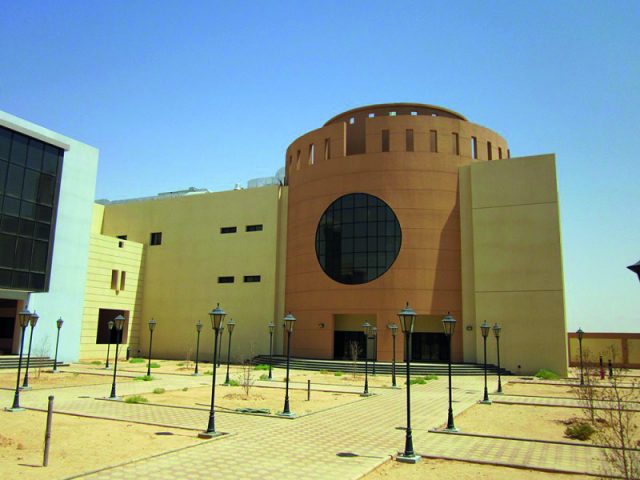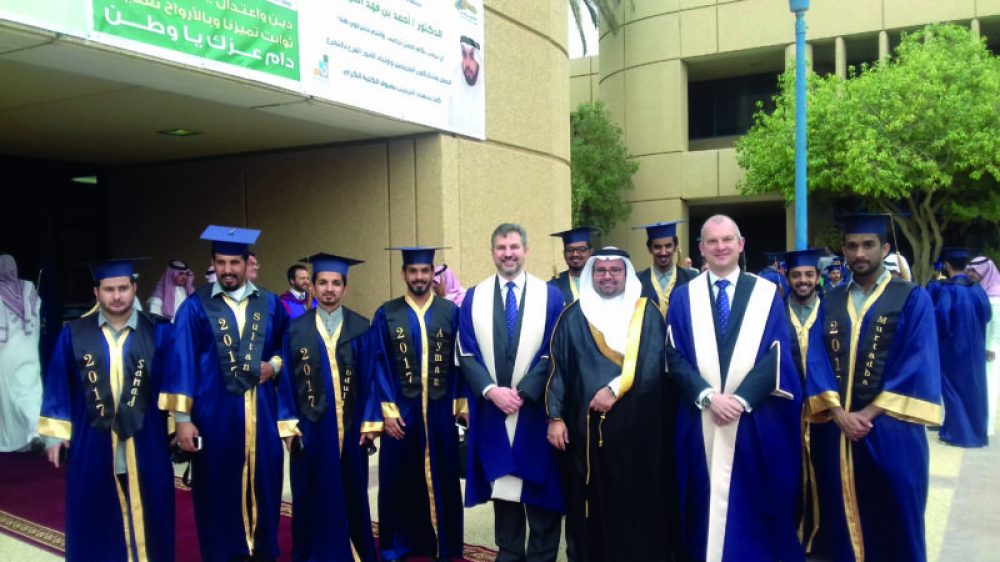An English college will extend its involvement with the Saudi Arabian Colleges of Excellence programme, squashing rumours that the controversial project was on the cusp of being wound down.
FE Week approached all the English FE providers involved with the scheme, after rumours circulated online that the entire project – to boost technical and vocational training in the middle Eastern country – was set to close this year.
A spokesperson for Lincoln College issued a steadfast denial and said the college “remains committed to operating in the Kingdom of Saudi Arabia for at least the next 20 years”.
He challenged the suggestion that CoE, which was launched in 2013 involving a number of English providers, could close this year. The programme was “in no sense in jeopardy”, he added, and was now focused on “the expansion of existing programmes and the opening of new colleges”.
He told FE Week that Lincoln College International had taken over a Technical Trainers College in Riyadh in 2016, increasing student numbers, and introducing a new senior management team. LCI is also in the middle of a tender process to operate this TTC for three more years, and this month it signed a new contract with CoE to deliver English language training in the health sector.
The rumours began in January, when EL Gazette, an international news and media company for the English Language Teaching industry, featured a piece by an English teacher working in the Gulf who reported on “struggles” with the flagship programme.
“Unconfirmed reports on social media suggest this programme, worth £1 billion to the British economy alone, may be scrapped in 2017,” suggested the report.
In total, six FE colleges and an educational organisation in Oxford all confirmed to FE Week that they intend to continue working with CoE.
North Hertfordshire College and Hertfordshire Regional College, which operate together in Saudi as the Hertvec consortium, insisted they would continue supporting their three colleges in the region.
An NHC spokesperson said: “We are proud of the work we are doing to support our Saudi students, and are actively engaged with CoE as they think about the future of technical education in the kingdom for the medium and long-term.”
HRC continues to be Hertvec’s lead shareholder, despite suggestions in 2015 that it might abandon the venture altogether.
However, minutes from an NHC corporation board meeting on September 7, 2015, read: “We have agreed with HRC a 90-day option, to mid Sept, to replace them as a partner in Hertvec.” However, a spokesperson at HRC told FE Week that it is still “totally committed to the joint venture”.
The North East Surrey College of Technology established another Saudi consortium, together with Burton and South Derbyshire College, Highbury College, Birmingham City University and the University of Hull.
The consortium secured a £75 million contract in 2013 to run Saudi Arabia’s first women-only vocational college in Jeddah, and a spokesperson told FE Week that this deal currently extends until July 2018. He said the consortium was “unaware of any specific threats to the future of the [CoE] initiative”.
A spokesperson for Burton and South Derbyshire College said the Nescot Consortium had “worked hard from the outset to understand the needs of students, parents and prospective employers on the ground in the kingdom”.
BCU was unable to comment by the time of going to press, while Highbury College and the University of Hull did not respond to our attempts to make contact.
The final UK consortium, the Oxford Partnership, is chaired by Sally Dicketts, chief executive of Oxford-based educational organisation Activate Learning.
It was created with GEMS Education and Moulton College, and runs four women-only colleges in the kingdom. Ms Dicketts said the colleges are “making a huge impact on the lives of hundreds of women”.
FE Week also attempted to contact CoE, and requested a comment from the Department for International Trade, but neither replied by the time of going to press.
Troubled history of English involvement
But a number of providers dropped out of the programme early on as challenges with operating in the region became apparent.
Colleges of Excellence was founded in 2013 to boost technical and vocational education and training in Saudi Arabia through partnerships with international providers.
Lincoln College was the only college in England to enter the CoE programme on its own, and was awarded a huge contract worth £250 million in 2014 to establish three colleges in the Kingdom.

But Lincoln announced in January 2016 that its two colleges in the Al-Aflaj region would be closed by the end of the month, as was subsequently reported in FE Week.
A statement on its website said: “Unfortunately, the number of students able to participate in this unique education in Al-Aflaj is not sufficient.”
Lincoln also faced some financial hardship in the process of getting its Saudi project off the ground.
In March last year a spokesperson told FE Week there had been “exceptional costs” related to the “initial mobilisation and recruitment for a male college, which was discontinued by CoE and replaced with the female college in Al-Qatif”.
However, when speaking to FE Week on April 19, the spokesperson said: “Lincoln College International will make surplus from 2017 onwards.”
The Hertvec consortium also faced initial challenges in Saudi Arabia after it rapidly lost a member.
The partnership, between Hertford Regional College and North Hertfordshire College, was supposed to be supported by the University of Hertfordshire and the Samama Holdings Group, a Saudi Arabian company specialising in construction and facilities management.
But an enquiry from FE Week revealed the university had pulled out shortly after a bid for the contract was made.
HRC audit committee minutes from March 2015 also showed that a payment of £713,000 due from Saudi Arabia had been delayed for a period.
A Hertvec statement described the first year of the project as “a challenging one, from which we take many invaluable lessons”.
Nescot found itself under a cloud last year when its then-principal Sunaina Mann left her post, after FE Week reported she had paid her husband almost £200,000 in a contract for consultancy work in Saudi Arabia.
FE Week understands Ms Mann still heads the Nescot Consortium’s Jeddah Female College in Saudi, despite cutting ties with the college in the UK.
According to Moulton College corporation board meeting minutes from Jan 26, 2017, the Oxford Partnership recently underwent significant changes, after GEMS Education dropped out and was replaced by a new partner.
The minutes said: “TOP had received final confirmation from the CoE that approval had been given for the new partner Global Dimension for Education Training and GEMS had formally withdrawn from the partnership.”
Both Sally Dicketts, the chair of the partnership, and Moulton College declined to comment, while GEMS Education was unable to respond by the time of going to press.
*Main image: Lincoln College Group chief executive, Gary Headland, with guests and higher education graduates at a graduation ceremony in Riyadh in March this year








Sounds like a classic case of too much money and not enough commercial common sense or understanding of the culture and requisite needs of the area – not surprised….
The obvious but shamefully missed issues and questions:
1 Have they raised the issue of human rights?
2 Have they improved human rights e.g. are they training migrant workers who otherwise are being dispatched home?
What on earth are they doing there, other than a feeble makeweight for a commercial deal focussed on arms sales to a despicable regime?
How can they look their diverse student body in the eye? They should read Amnesty reports rather than their grubby balance sheets. Shame on them1
Eloquently put.